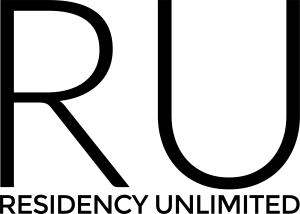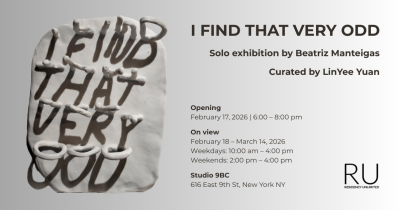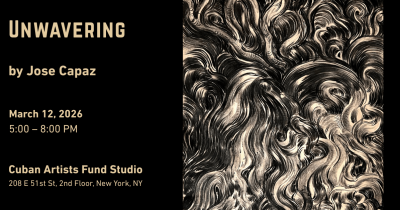August 7 – 11, 2023
Location: Residency Unlimited
360 Court Street (main green church doors), Brooklyn NY 11231 (map)
Faculty include Antonia Alampi with Suumil Móokt’aan, Armen Avanessian, Clémentine Deliss, Jeremy Dennis, Anna Mikaela Ekstrand, Nora N. Khan, Syd Krochmalny, Sanford Kwinter, Erin Manning, Warren Neidich (founder/director), Reza Negarestani, Barry Schwabsky (co-director), Javier Téllez, and Anuradha Vikram.
This year’s Saas-Fee Summer Institute of Art has been co-conceived with Abdul-Karim Mustapha and will explore the concept of “Cognitive Justice and the Crisis of Epistemology” in collaboration with The Brooklyn Rail online and Residency Unlimited on-site in Brooklyn, New York.
As a result of the acceleration of information technologies occurring at a blinding pace under cognitive capitalism, a conflict has erupted between scientific and non-scientific epistemologies and forms of truth. The term epistemology comes from the Greek words episteme and logos as they relate to theories of knowing and understanding. Cognitive Justice concerns the right of different traditions of knowledge to co-exist without duress. Especially relevant for us here are those forms of knowledge which have evolved in the so-called enlightened global North and those in the subaltern global South. We are suggesting that the struggle for global social justice, as it relates to the fair and equitable treatment of all groups populating a given state or society, is connected to the struggle for global cognitive justice and the two forms of justice are intimately related; without one there cannot be the other.
The struggle for cognitive justice is not simply based on the equal distribution and access of knowledge but must also encompass two deeper conditions that reflect its actual formation. Beyond the present impossibility of the equitable distribution of scientific knowledge under the persistent regimes of colonialism, capitalism, and computationalism, scientific knowledge is limited by its own assumptions which usually have precluded other forms of knowledge: for instance, traditional Chinese medicines. Cognitive justice does not mean dispensing with those knowledges gathered through the scientific method in favor of those that engage subaltern practices based on practical forms of knowledge. But it does imply the counter-hegemonic value of the latter; first to question Enlightenment orthodoxy and then to expand the general intellect of a global multitude. This calls for several different strategies including engaging with rational science’s internal pluralities and inconsistencies that, for instance, Indigenous, feminist, queer, and postcolonial voices have made visible. Most important for this program, however, are the ways that Indigenous peoples use their knowledge to preserve biodiversity in the ecological communities they inhabit as opposed to Eurocentric modes of technology which have decreased biodiversity. Through this program we also ask: How does biodiversity relate to the brain’s neural diversity? How might this relate to the constitution of hidden layers of deep learning artificial neural networks such as ChatGPT and DALL•E2? And, most importantly, how might this inform the struggle for Cognitive Justice?
Program Schedule
MONDAY – AUGUST 7
10am Nora N. Khan (online)
1-3pm Warren Neidich and Barry Schwabsky (orientation)
4-6pm Jeremy Dennis (seminar)
TUESDAY – AUGUST 8
10am Antonia Alampi with Suumil Móokt’aan (online)
1-3pm Anuradha Vikram (seminar)
4-6pm Anuradha Vikram (discussion)
WEDNESDAY – AUGUST 9
10am Armen Avanessian (online)
1-3pm Reza Negarestani (seminar)
4-6pm Reza Negarestani (discussion)
THURSDAY – AUGUST 10
10am Clémentine Deliss (online)
1-3pm Javier Tellez (seminar)
4-6pm Syd Krochmalny and Anna Mikaela Ekstrand (seminar)
FRIDAY – AUGUST 11
10am Erin Manning (online)
1-3pm Sanford Kwinter (seminar)
4-6pm Warren Neidich and Barry Schwabsky (discussion)
7-9pm CLOSING
Free Public Lecture Series
A central feature of SFSIA is a Public Lecture Series, which is free and open to the public to invite conversation, debate, and inquiry across communities. This year the public lecture series will be held online in collaboration with The Brooklyn Rail.
All times EST/New York City.
All lectures will be streamed on The Brooklyn Rail‘s YouTube page.
MONDAY – AUGUST 7
10am Nora N. Khan
TUESDAY – AUGUST 8
10am Antonia Alampi with Suumil Móokt’aan
WEDNESDAY – AUGUST 9
10am Armen Avanessian
THURSDAY – AUGUST 10
10am Clémentine Deliss
FRIDAY – AUGUST 11
10am Erin Manning
Click here to see faculty bios
Click here to see videos of the lectures
About SFSIA
Saas–Fee Summer Institute of Art (SFSIA) is a nomadic, intensive summer academy with shifting programs in contemporary critical theory that stresses an interdisciplinary approach to understanding the relationship between art and politics. SFSIA originated in Saas–Fee, Switzerland in 2015 and then migrated to Berlin, Germany where it has been hosted by Import Projects (2016) and Spike (2017–19). Additional programs have been hosted by Otis College of Art and Design in Los Angeles, Performance Space New York, and sonsbeek20–24 in Arnhem, The Netherlands. SFSIA was founded and is directed by Warren Neidich and is co-directed by Barry Schwabsky. Sarrita Hunn is the assistant director.
About The Brooklyn Rail
Founded in October 2000, The Brooklyn Rail provides an independent forum for arts, culture, and politics throughout New York City and far beyond. Our journal features criticism of visual art, music, dance, film, theater and literature, alongside thoughtful political commentary and original fiction and poetry. The Rail is distributed free of charge both in print and online, and further fulfills its mission by curating art exhibitions, panel discussions, reading series and film screenings that reflect the complexity and inventiveness of the city’s artistic and cultural landscape.
About Residency Unlimited
Residency Unlimited is a non-profit art organization that supports the creation, presentation and dissemination of contemporary art through its unique residency program and year-round public programs. Residency Unlimited is located within the former South Congregational Church in Carroll Gardens, Brooklyn. The space is multifunctional, acting as a hub and meeting place for various communal activities, public programs, including talks, screenings, performances and exhibitions.






